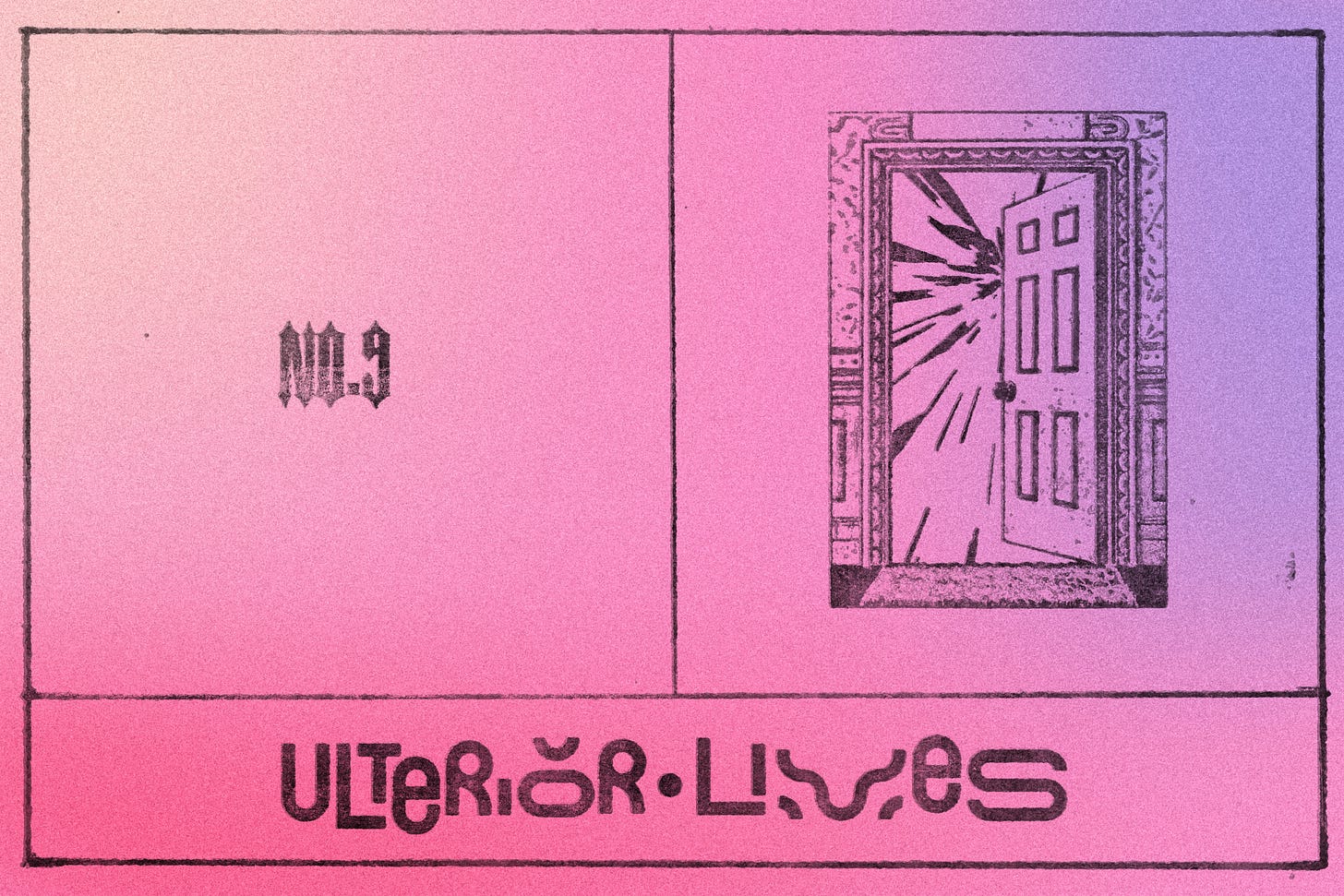Finding paradise by accident
Do the heavenly-minded find paradise on Earth intentionally, or just as some by-product of other choices?
Welcome back to our ‘Ulterior Lives’ series! Before we delve in, we’d be silly not to mention our thought-provoking (and final) print edition Passio, which is available in our shop, featuring some of David’s writing along with many other fantastic contributors. Plus, if we say so ourselves, it’s a lovely thing to hold and read on an optimistically sunny spring day. Grab one while stocks last, as they say.
Part 9 of our Ulterior Lives series: A Slow Research Project into The Outsider Politics of Monasticism. Read the introduction here.
In the course of these explorations I keep finding myself circling around a paradox. I've learned over time to hold my anarchist sensibilities alongside a sober vision of what is possible or achievable without laws and states and rulers and overbearing economic systems. Most alternative forms of life that have tried to throw off the violence of history have tended to be brief, in spite of rigour and bravery. Histories of civilisation sneer at the long list of failed escapes and misguided idealists.
The desert hermits, on the other hand, appear to have achieved what so many radical theorists and philosophers could only write books about, and what revolutions have rarely sustained for more than a short time. And they did it, apparently, without thinking through or articulating any coherent political theory. Did they even know what they were doing? Were they even aware of what they were part of?
There is an old saying “too heavenly minded to be of any earthly use.” We might charge the desert hermits thusly, on several counts. Their comedy of piety is rooted in the continual absurdity of their behaviour. One saying after another documents a community of eccentrics who would respond to ordinary situations in the most bizarre fashion. The one who finds money, but leaves it because it wasn't he who had put it there. The one who digs up a corpse to subdue himself when he feels sexually aroused. The one who drinks the dregs from another's cup because he was disturbed by his condescending feelings towards them.
What do you do with people like this? What use is such a community of oddballs? What are they but a source of amazement and amusement? They're a flock of eccentric creatures, each lost in a dialogue with their own inner life, and with things fanciful and invisible. Each found their own idiosyncratic expression of the collective madness that had struck them all. They were an apocalypse of harmless and useless weirdos living their bizarre lives in the light of some coming judgement. The scene is so strange that one might almost fail to recognise the situation as one of the world's most successful, stable and harmonious anarchist movements.
Perhaps uselessness was the secret they kept, even from themselves. Perhaps the failing of so many radical movements lies precisely in their lack of otherworldly uselessness. Political theories formed against existing structures always bear the negative impression of what they wish to overthrow. By virtue of their conscious intent, they tend to remain bound to the power they would like to wrest from their tyrants, rulers and regimes.
In the sayings of the hermits it is certainly very difficult to find any trace of political theory, or any conscious attempt to form an anarchist utopia in the wilderness. They wished to save their souls. They often appeared to be quite individualistically fixated on the matter of their own religious salvation. If they formed an earthly utopia in the process, it would appear to be by accident.
I am rather pulled up by this. I have spent years writing against pie-in-the-sky-when-you-die theologies that have no common, creaturely, material interests. Individualistic fixation on personal salvation has certainly not led other religious communities toward simple and sustainable political economies without violent rule and controlling systems. Usually quite the opposite. It’s partly for this reason that the hermits are such an arresting vision of extraordinary postures and possibilities.
Let's have a little bit of fun sketching a political non-theory of the situation. The picture makes a curious kind of sense. To be a person of no earthly use is a striking position to hold. Wherever human populations are fashioned into patterns of life that generate wealth for premier wealth-generators (“there went out a decree from Caesar Augustus that all the world should be taxed…”1), viable patterns of life that are useless to those political economies are not so easily systematised or centralised. They can't be called to heel. And of course, the formula also works in reverse. The hermits were so heavenly-minded that the Roman Empire was of no use to them either. Money, rulers, armies… all quite superfluous. They rendered Caesar defunct. They had no need of him.
But it seems somehow crucial that this was, in a way, only achievable by accident. They were so fixated on heavenly things, to which they conformed their earthly lives, that they more or less forgot about Caesar in his white pillared palace. An enemy always takes up a lot of space. An enemy is always a something. But to them, he was nothing.
Ancient mystic morning routine
Revisit our series 'Notes on Poverty, Death and Nothingness', exploring the writings of St Paul of the Cross. Can we sit with suffering long enough to leave the competitive grind behind?
Luke 2.1, KJV.








